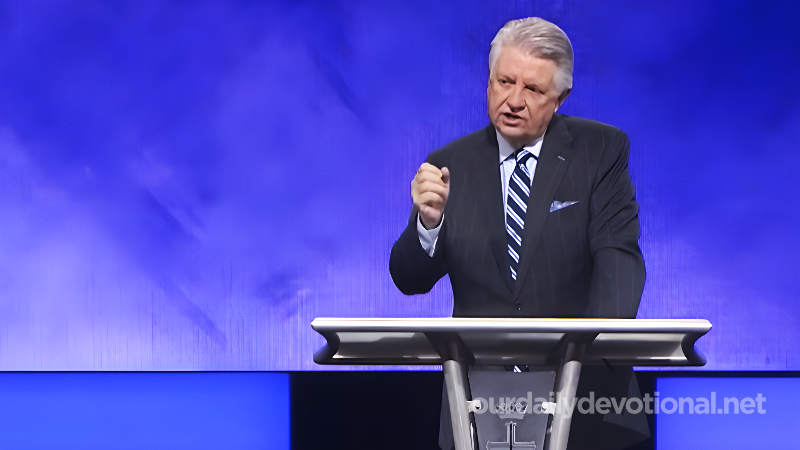(a) It is a Greek term that means "second law" or "reiteration of the law", and that designates the fifth book of the Pentateuch; comes from the name given to this book in the LXX, to translate the expression "copy of the law" in Deut. 17:18.
However, this expression is unfortunate, since this book is not a mere repetition or copy of the law already promulgated. This is a recapitulation, made during particular circumstances, and for a special purpose.
In Exodus, Leviticus and Numbers, legislation is presented on the occasion of its promulgation. The occasion or date of the receipt of successive sections is ordinarily indicated, and is declared of each group of statutes. separately, which comes from God. In contrast, in Deuteronomy the law is presented as a whole, and commented upon to some extent.
At the time of Deuteronomy, 38 years had already passed since most of the provisions of the legislation had been given. The new generation was on the eve of taking over Canaan, and is summoned here in order to hear the law of the nation, to learn to apply its principles to the new circumstances that were approaching, to see more clearly its spiritual meaning, and to enter with full knowledge of the facts into the alliance made with his parents.
Instead of God speaking to Moses, we have here Moses speaking, at God's command, to the people (Deut. 1:1-4; 5:1; 29:1).
The book is mainly composed of 3 expositions, recorded in writing, and on the basis of which the covenant is solemnly renewed (Dt. 1-30).
(b) First exposition: (Deut. 1-4:43).
Examining the history of the people after the celebration of the covenant at Sinai with the previous generation should be a reason for obeying Jehovah's laws. This speech is attributed to Moses (Deut. 1:1, 3, 5, 9, 15, 16, 20, etc.).
Date: the 40th year, the 11th month, the 1st day; after the victory over Sihon and Og, and after the sin Israel committed in joining the sacrifices of Baal-peor (Deut. 1:3, 4; 4:3).
It was pronounced "beyond the Jordan" (Deut. 1:1), as it should really be translated. For Abraham and the Canaanites, this expression means the country located east of the river. The descendants of Abraham gave this expression the same geographical meaning.
They were precisely then to the east of the Jordan, but, in the same way as the patriarchs, they continued to call this place "the other side of the Jordan", in the same way that they gave the name of Abarim to the neighboring cliffs, this It is, "the mountains on the other side."
And certainly the people had the impression of being on the other side of the Jordan, being outside the Promised Land. However, since the river has not yet been crossed, this ambiguous expression is repeatedly completed with expressions such as "in the land of Moab" (Deut. 1:5).
(c) Second exposition: Deut. 4:4-26:19.
Recapitulation of the ordinances regarding the people, with insistence on the spirituality of the laws, and with great insistence on obedience to them.
These statutes are, generally, positive laws, implying rights and duties; or they are laws that man, due to his natural depravity, could ignore. The latter, based on religious reasons, decree:
(A) The founding of cities of refuge for involuntary murderers;
(B) the exclusion of idolatry;
(C) considerations towards the weakest and least privileged in the community.
The speaker here is Moses (Deut. 5:1, 5, 22).
The date recorded is the end of the 40 years in the desert, on the eve of crossing the Jordan, after Balaam's prophecy (Deut. 8:2; 9:1; 11:31; 23:4).
(d) Third exposition: Chaps. of Deuteronomy (Dt. 27-28) are the conclusion of the preceding:
(A) Command to inscribe the law on the lime-plastered stones that were to be erected on Mount Ebal.
(B) Blessings and curses consequent upon obedience and disobedience. This majestic proclamation is immediately followed by a brief address (Deut. 29-30), delivered during the ratification of the renewal of the covenant (Deut. 29:1; 30:1). This covenant was recorded in a book (Deut. 29:20, 21, 27; 30:10; cp. Ex. 24:4-8), just like the preceding covenant concluded at Horeb, that is, Sinai.
The place and date of the renewal of the covenant are mentioned in Deut. 29:1, 5, 7, 8.
After these three expositions that form the essence of the book of Deuteronomy, Moses publicly designates Joshua as his successor, and confers on him a precise mission (Deut. 31: 1-8).
He then puts this law in writing to the priests, and orders its public reading to the Israelites (Deut. 31:9-13).
Later, Joshua is clothed with his functions (Deut. 14-15).
In the tabernacle God inspired Moses a song for the people (Deut. 16-23), which he wrote (v. 22); Then he ordered the Levites, bearers of the ark, to deposit the finished book next to the ark as a testimony (Deut. 24-29). He then commanded the elders and officials of the tribes to gather together to learn and understand this song (v. 28), which he repeated in public (Deut. 31:30-32:47).
Moses' farewells are recounted in Deut. 32:48-33:29; The account of his death is found as an epilogue in Deut. 34.
What characterizes Deuteronomy are the preparations for the installation in the country of Canaan; This particularity determines:
(A) The way of expressing itself: people are going to become sedentary, and the camp stops being mentioned, while it occupied a large space in the 1st legislation; He is not spoken of except with respect to future wars, or with respect to the fact that he is presently located in Shittim. On the other hand, it refers to houses, cities, and their "doors."
(B) Minor modifications to laws in force, in order to adapt them to new ways of existence. For example, the law requiring that animals sacrificed for consumption be brought to the entrance of the tabernacle was changed; they could be killed in every locality where they lived (Deut. 12:15, 21; Lev. 17:3, 4); For the same reason, it will no longer be necessary to offer the firstborn of animals to God on the 8th day; Its sacrifice may be deferred until the owner, if he resides very far from the sanctuary, comes to the annual festivals (Deut. 15:20; cp. Ex. 22:30).
When the Hebrew slave prefers to remain attached to his master's house instead of claiming his legal right to freedom, the door ceremony will suffice, and it is not necessary for him to appear before God (Deut. 15:17, cp. Ex. 21:6).
(C) New measures are taken for the safeguarding of the dependent classes: Levites, widows, orphans, foreigners. The Deuteronomic code protects them against the harm that could be caused by the selfishness and indifference of the Israelites, already well demonstrated all too often during the pilgrimage in the desert.
(D) The nation will have a single altar, in the place chosen by Jehovah to place his name there. This single altar should neutralize the tendency towards idolatry, by preventing the people from celebrating their worship in the numerous sanctuaries of the Canaanites.
Thus, the ceremonies in honor of Jehovah would become infinitely more solemn and magnificent than the idolatrous rites of Canaan, since the Hebrews would have to congregate in large groups, bringing to the Lord the homage of all their resources.
This cult, celebrated by the entire nation, was also supposed to strengthen the community, contributing to unifying the nation. The dangers had already been evident: jealousy between people and tribes, the people's tendency towards idolatry, an important propensity for a large part of the people to separate from their brothers to settle in regions rich in pastures.
In this critical period the Deuteronomic code underlines with new insistence the already ancient law of the unity of the place of worship. National cohesion and the maintenance of the theocracy depended on it.
(e) The author of Deuteronomy.
Most explicitly, and perhaps more insistently than the other parts of the Pentateuch, this book designates Moses as its author. It begins with these words: "These are the words that Moses spoke to all Israel..." (Deut. 1:1).
Precise details of date and place are given (Deut. 1:2-6; 4:44-46).
Moses is mentioned more than 40 times, generally as the authoritative source of this or that statement; he most often speaks in the first person. Toward the end of the book, we read: "Moses wrote this law, and he gave it to the priests...and to all the elders of Israel" (Deut. 31:9).
"And when Moses had finished writing the words of this law in a book to the end, Moses gave orders to the Levites who were carrying the ark of the covenant of the Lord, saying: 'Take this book of the law, and put it beside the ark. of the covenant of the Lord our God, and be there as a witness against you” (Deut. 31:24-26).
Scholars respectful of the Scriptures discover even additional proofs of the genuineness of this book: the general character of this work, the nature of its exhortations, the commands given with a view to conquest, the military legislation given to a nomadic people on the subject. to establish itself definitively in a sedentary manner, the spirit, in short, that animates these magnificent pages, all this is evidently in relation to the Mosaic epoch, and not at all to a later period.
If this book were not of Moses, it would be difficult to regard it as anything other than a literary forgery unworthy of being in the Scriptures.
(f) Opinion of critics about the author's question.
Among the books of the Pentateuch, Deuteronomy is particularly attacked by critics, who dogmatically deny its mosaicity. They claim that the author was an unknown prophet who wrote "in the manner of Moses" between 715 and 640 BC.
The book would then have been published for the first time (found in the "house of Jehovah"), in the 18th year of King Josiah, in order to support the great religious reform then underway (2 Kings 22-23).
The main reason for proposing such a date is that the OT books do not explicitly repeat the command of Deut. 12:1-7 regarding the central sanctuary. Thus, they argue, this law would not have been enacted until the time of Josiah.
However, unbiased examination of Deuteronomy reveals that its laws had been written down, known, and enforced when Israel entered Canaan. Evidence of this can also be given.
Jericho was "given to the accursed" (Josh. 6:17-18), based on Deut. 13:15 ff. After the taking of Ai, the people only took "the beasts and the spoil of the city" (Josh. 8:27), according to the instructions of Deut. 20:1-4. The body of the king of Ai was taken down from the tree before nightfall (Josh. 8:29; Deut. 21:23). The altar on Mount Ebal (Josh. 8:30-31) is reminiscent of Deut. 27:4-6.
The same law of the central sanctuary was known early in Israel's history: The tribes established east of the Jordan claimed that their memorial altar was in no way intended to take the place of the altar of the sanctuary (Josh. 22:29; Deut. . 12:5).
On the other hand, we see that Elkanah went every year to Shiloh, where the cult had its first center. After the destruction of Shiloh, and a period of war, Samuel sacrificed at Mizpah, Ramah, and Bethlehem, the regulations of Deut. 12:10-11 applying to times of rest and safety.
The revival of Hezekiah (2 Kings 18: 4, 22) would not be conceived without knowing Deuteronomy and its unique law regarding the central sanctuary, a law that was also known to the prophets of the 8th century.
It is preferable to stick to the clear facts than to follow the twisted argument, based on nothing more than unsustainable hypotheses, against which, in addition, stands the direct and totally decisive testimony of the sanction given to the book by the Son of God himself, to the quote three of his passages (Mt. 4:4, 7, 10; Luke 4:4, 8, 12), in response to the three temptations of Satan, as the word of God.
Meaning of DEUTERONOMY
(a) It is a Greek term that means "second law" or "reiteration of the law", and that designates the fifth book of the Pentateuch; comes from the name given to this book in the LXX, to translate the expression "copy of the law" in Deut. 17:18.







